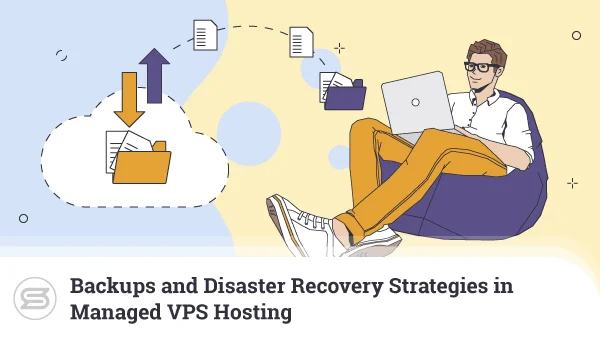Introduction
Data is the lifeblood of any online venture, and safeguarding it is crucial. Virtual Private Server (VPS) hosting, while robust, isn’t immune to data loss. Establishing a reliable backup strategy is essential to mitigate risks and ensure the continuity of your digital presence. In this guide, we explore effective backup strategies tailored for VPS hosting environments.
1. Understand Your VPS Hosting Environment
Know Your Infrastructure
– Operating System:
Understand the specifics of your VPS operating system, as backup procedures can differ between Linux-based and Windows-based systems.
– File System:
Be aware of the file system your VPS uses (e.g., ext4 for Linux, NTFS for Windows) as it influences backup tools and methods.
2. Regularly Back Up Critical Data
Identify and Prioritize
– Website Files:
Regularly back up your website files, including HTML, CSS, and media files. These constitute the core of your online presence.
– Databases:
If your VPS hosts databases (e.g., MySQL, PostgreSQL), ensure regular backups to capture critical data stored within.
– Server Configuration:
Document and back up server configurations, ensuring a quick recovery in case of system failures or misconfigurations.
3. Utilize Automated Backup Tools
Efficiency Through Automation
– rsync (Linux):
Leverage tools like rsync for Linux-based systems to synchronize and backup files efficiently.
– Windows Server Backup (Windows):
On Windows-based VPS, utilize built-in tools like Windows Server Backup or explore third-party solutions for automated backups.
– Backup Plugins (CMS):
For content management systems (CMS) like WordPress, use backup plugins that automate the process of backing up your website files and databases.
4. Offsite Backups for Redundancy
Distributed Storage Solutions
– Cloud Storage:
Implement offsite backups by utilizing cloud storage solutions such as Amazon S3, Google Cloud Storage, or Microsoft Azure. This ensures redundancy and protection against data center failures.
– Remote Server:
Set up backups on a remote server or another VPS to create an additional layer of redundancy. Ensure secure transfer protocols, such as SSH or SFTP, are used for data transfer.
5. Schedule Regular Backup Tasks
Consistency is Key
– Cron Jobs (Linux):
Schedule regular backup tasks using cron jobs on Linux systems to automate the backup process at specified intervals.
– Task Scheduler (Windows):
On Windows VPS, use the Task Scheduler to create automated backup tasks, ensuring consistency and reliability.
– Backup Frequency:
Determine an appropriate backup frequency based on the frequency of data changes and the criticality of your applications.
6. Test Your Backups Regularly
Verify Restorability
– Recovery Testing:
Regularly test the restoration process from your backups to ensure they are viable and complete. This practice is crucial for a reliable disaster recovery plan.
– Simulate Scenarios:
Simulate different failure scenarios to validate that your backup strategy can effectively restore your VPS to a functional state.
7. Implement Versioning for Data
Track Changes Over Time
– File Versioning:
Utilize file versioning to track changes over time. This ensures that you can revert to previous versions in case of accidental data loss or corruption.
– Database Versioning:
Implement versioning for databases, capturing changes and updates. This is particularly essential for dynamic websites with frequently updated content.
8. Document and Store Backup Procedures
Create a Comprehensive Guide
– Backup Documentation:
Document your backup procedures comprehensively, including the tools, schedules, and locations of backups. This guide becomes invaluable during recovery efforts.
– Emergency Contacts:
Keep a list of emergency contacts, including hosting providers and technical support, in case you encounter challenges during the restoration process.
Conclusion
A robust backup strategy is a cornerstone of VPS hosting management. By understanding your VPS environment, prioritizing critical data, leveraging automated tools, utilizing offsite storage, scheduling regular tasks, testing backups, implementing versioning, and documenting procedures, you fortify your VPS against potential data loss scenarios.
Investing time and effort in creating and maintaining an effective backup strategy ensures that your VPS hosting environment remains resilient, safeguarding your digital assets and allowing for a swift recovery in the face of unforeseen challenges.

